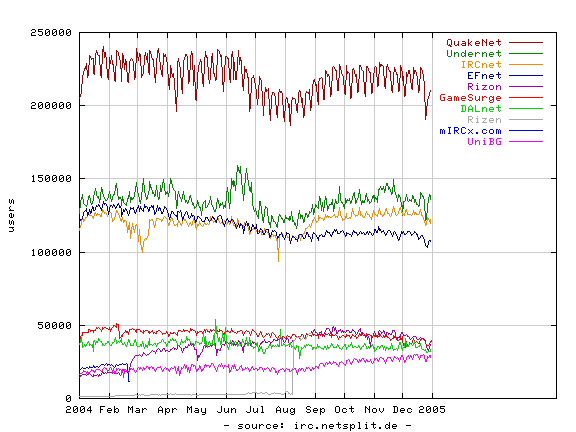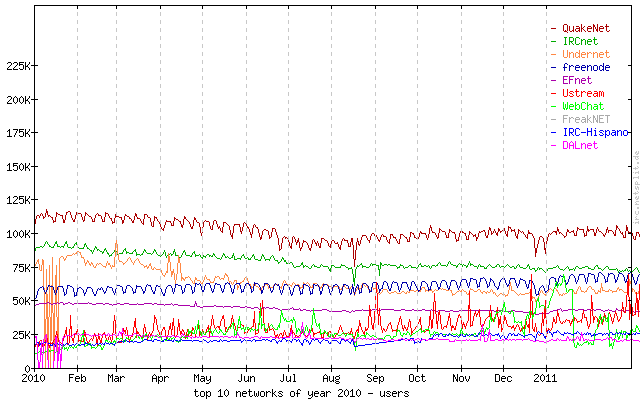I discovered IRC around 1993.
Back then, before EFnet split in two, the IRC channel I frequented was #amiga and we were a small bunch of people from all over the globe who got to know each other pretty good. In the 90s I participated in one of my first open source projects and we created the IRC bot we named Dancer. Dancer was a really talented “defence bot” back in the days of the “wild west” of IRC when channel take overs, flood attacks and nick collisions were widespread and frequently occurring. Dancer helped us keep things calm. Later on, I was part of the team that created and setup the new IRC network called amiganet.
I’ve been using IRC on and off since those days in the early 1990s and still today I hang out on 5-6 channels on freenode every day.
IRC was launched to the world already 1988, almost 23 years ago. I’ve been trying to document the basic history of IRC and when I updated that page the other day with some usage numbers for freenode, I decided to have a look around the net to see if there are any general numbers for IRC usage at large, and I found out that usage is decreasing all over and has been doing so for years. Without research, I figure IRC users are either old farts like myself or at least very tech oriented and geeky. Younger, newer and less techy people use other means of communication.
IRC never “took off” among the general public. In general, I find that general people prefer various IM systems (something that I’ve never understood or adopted myself) and most “ordinary”humans I know don’t even know what IRC is. Possibly, the fact that the IRC protocol never got very good (there’s only that original spec from ’93), that there’s a million completely separated IRC networks with no cross-network messages or that all IRC networks still today suffer from netsplits and other artifacts due deficiencies in how the IRC servers are talking to each other.
5-6 years ago the four most popular networks were all over 100,000 users regularly. Quakenet were well over 200,000. Last year, only Quakenet reached over 100,000. It seems basically all of them have roughly half the numbers they had 2004.
Graphs from irc.netsplit.de:




 Thirteen years ago I released the first version of
Thirteen years ago I released the first version of 
